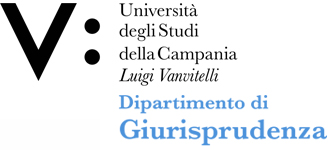Annamaria MANZO
Insegnamento di DIRITTO ROMANO E TRADIZIONE ROMANISTICA
Corso di laurea magistrale a ciclo unico in GIURISPRUDENZA
SSD: IUS/18
CFU: 16,00
ORE PER UNITÀ DIDATTICA: 96,00
Periodo di Erogazione: Primo Semestre
Italiano
| Lingua di insegnamento | ITALIANO |
| Contenuti | Le istituzioni pubbliche e gli istituti del diritto privato dei Romani dalle origini a Giustiniano. Le fonti del diritto e le loro classificazioni. |
| Testi di riferimento | Per i corsisti: |
| Obiettivi formativi | Il corso si propone l’obiettivo di indirizzare lo studente del primo anno alla comprensione e all’apprendimento del linguaggio e dei principali concetti giuridici, nella convinzione che il diritto è fenomeno eminentemente storico e che pertanto la plurisecolare vicenda della società romana antica, considerata sotto il privilegiato angolo visuale della formazione e dell’evoluzione degli istituti tanto pubblicistici quanto privatistici, possa ancora oggi rivelarsi – attraverso un’adeguata e critica comparazione diacronica – guida feconda per una migliore intelligenza delle moderne dinamiche giuridiche. |
| Prerequisiti | Conoscenza di base della storia romana. |
| Metodologie didattiche | Il corso si svolgerà con il metodo della didattica frontale, integrato dalla proiezione di slides illustrative. Sono previste altresì esercitazioni su testi giuridici e simulazioni di esame |
| Metodi di valutazione | Esame orale e prove intercorso facoltative. |
| Altre informazioni | Considerata la complessità e la durata del corso, sono previste prove intermedie facoltative, riservate ai soli corsisti che abbiano frequentato un congruo numero di lezioni, e che in caso di superamento comporteranno la dispensa per lo studente della relativa parte di programma in sede di esame finale. |
| Programma del corso | La prima parte del corso si soffermerà: a] sui concetti di ‘fonti di produzione’ e ‘fonti di cognizione’ del diritto; b] sulle strutture costituzionali e sul loro funzionamento nelle diverse forme di governo che Roma sperimentò nei circa quattordici secoli della sua esistenza; c] sulle trasformazioni della società romana dal punto di vista sociale, politico, economico, giuridico; d] sul diritto e sul processo criminale. La seconda parte del corso verterà sul diritto privato romano. Nello specifico, oltre a nozioni giuridiche di base, utili ai fini della cosiddetta teoria generale del diritto (fatti e atti giuridici; il negozio giuridico, i suoi presupposti e i suoi elementi; i concetti di validità ed efficacia; la rappresentanza), si tratteranno: a] il diritto delle persone (status familiae, status libertatis, status civitatis, con le connesse prerogative e limitazioni); b] il diritto delle cose (le res e la loro distinzione; il dominium e le sue vicende; la successione mortis causa, tanto a titolo universale quanto a titolo particolare; la nozione di obligatio; le fonti delle obbligazioni; i vari tipi di obbligazioni); c] il processo privato (dalla arcaica procedura delle legis actiones, passando attraverso il più sofisticato agere per formulas, si giungerà alla cognitio extra ordinem, base indiscutibile del moderno processo civile italiano). |
English
| Teaching language | Italian |
| Contents | Public institutions and institutes of the Roman private law from the beginning to Justinian. The sources of the law and their classifications. |
| Textbook and course materials | For students who attend the course, a text by choice between: |
| Course objectives | The aim of the course is to direct the first-year student to the understanding and learning of language and key legal concepts, in the belief that law is an eminently historical phenomenon and that therefore the centuries-old story of ancient Roman society considered under the privileged visual angle of the formation and evolution of institutions both public and private, can still prove – through an adequate and critical diachronic comparison – fruitful guide for better intelligence of modern legal dynamics. |
| Prerequisites | Basic knowledge of Roman history. |
| Teaching methods | The course will take place with the method of frontal teaching, supplemented by the projection of illustrative slides. There will also be exercises on legal texts and simulations for examination. |
| Evaluation methods | Oral examination and optional tests. |
| Other information | Considering the complexity and duration of the course, optional intermediate tests are provided, reserved only for students who have attended a suitable number of lessons, and which in the event of passing will involve the dispensation for the student of the relative part of the program in the final exam. |
| Course Syllabus | The first part of the course will focus: a] on the concepts of ‘sources of production’ and ‘sources of cognition’ of law; b] on the constitutional structures and their functioning in the different forms of government that Rome experienced in the fourteen centuries of its existence; c] on the social, political, economic and legal transformations of Roman society; d] on the criminal law and criminal trial. The second part of the course will focus on Roman private law. Specifically, in addition to basic legal notions, useful for the purpose of the so-called general theory of law (facts and legal acts: prerequisites and elements; the concepts of validity and effectiveness; the representation), they will be: the law of persons (status familiae, status libertatis, status civitatis, with related prerogatives and limitations); b] the law of things (the res and their distinction; the dominium and its events; the succession mortis causa, both universally and in particular; the notion of obligation; the sources and the various types of obligations); c] the private trial (from the archaic procedure of the legis actiones, going through the most sophisticated agere per formulas, will come to the cognitio extra ordinem, indisputable basis of the modern Italian civil trial). |








